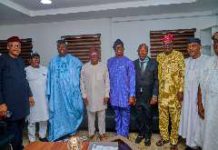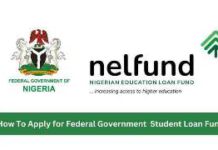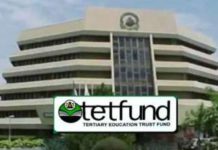By Joy Odor
The National Commission for Nonadic Education (NCNE) has gathered experienced resource persons and Directors of different department of the NCNC to critique the adapted curriculum guide in four subject areas, History, Christian Religious studies, Islamic Religious studies and National Values for the education of the Nomadic Pastoralists and Migrant Fisherfolk and Farmers to ensure its appropriateness and quality.
Speaking at the opening of the 5 days workshop for the critique in Abuja on Monday, the Executive Secretary of the Commission, Professor Bashir Usman said its envisaged towards effective teaching and learning of the adapted subjects would go a long way in restoring the education system such that the learners would have understanding of the collective history as people, complelling need for peace, tolerance and accommodation.

Professor Usman said the critique have became imperative due to the decline in the Nigeria religion, history and in the National and cultural Values caused by insecurity.
He opined that the nation has plagued by myriad of challenges which have a sharp decline in the understanding of the collective sense of history, moral values, social cohesion and rich cultural heritage as a people and getten worse among youthful population in Nigeria.
The ES NCNE said it is against this background that the NCNC introduced the four subjects for nomads with a view to attaining improvement for the overall development of education.
Professor Usman urged all participants in the critique to recognize and see through the Renaissance being ushered in by bringing their collective knowledge and experience in crafting the curriculum in the course of the workshop for the education of nomads in Nigeria.
“NIgeria is in dire need of a solution to stem the rising spate of social vices like conflicts, insurgency, armed robbery, kidnapping, drugs abuse, which are the root of current security challenges, with all its attendant consequences, hence the need to reintroduce history and other subjects.
“It is against this backdrop that the National Council of Education
directed for the re-introduction of certain subjects needed at the basic level such as History, Islamic Religious Studies, Christian Religious Studies and National Values comprising of; Social Studies, Civic and Security Education.

“However, the process of curriculum revision continues with a view to attaining improvements each time, for the overall development of education. it is envisaged that the critique of the adapted curriculum towards effective teaching and learning of these subjects, would go a very long way in restoring In our educational system, the virtue of brotherhood and citizenship, such that the learner would have a clear
understanding of our collective history as a people, our rich cultural heritage and so, the compelling need for peace, tolerance and accommodation,” he said.
According to him, the effectiveness of any programme requires continuous improvement, through update, of relevant educational materials for the attainment and sustenance of standards.
“I am glad to let you know that the review and adaptation of the above curriculum, took place in June, 2021.
“We are here today to critically examine the draft of the curriculum, to ensure its appropriateness and
quality.
“Distinguished invited guests, lades and gentlemen, Curriculum provides a cardinal link between education delivery and set national goals and objectives.
“It must therefore, be characterized by relevance, appropriateness, adequacy and demands of the time, in terms of contents shaping and stimulation of the minds of
learners/children of diverse background in terms of culture, ethnic, religious and social, in the spirit of peace, stability, security, development, integration and cooperation.
“Evidently, there is a sharp decline in the understanding of our collective sense of history, moral values, social cohesion and rich cultural heritage as a people.
“It is getting worse amongst the youthful population in the country,
who have relapsed into all manners of social vices, ranging from conflicts, insurgency, armed robbery, kidnapping, drugs abuse, etc,” he added
In her welcome address, the Head of Department Planning, Research and Statistics, Dr. Rose Nwaji said the effort of including the subjects are veritable tools to appeal to the cultural minds of such children and the youth and instill in them a sense of patriotism, moral values, selflessness and hard work as a panacea for the numerous challenges affecting the national life.

She believed that the outcome of the workshop would produced a relevant and effective Nonadic curriculum that will enable nomads children compete confidently and favorable with their fellow counterpart in convention schools.
“The objectives of the workshop are, among others to critically examine the adapted curriculum in line with the National Curriculum and NCNE Curriculum in Islamic Religious Studies (IRS),
Christian Religious Studles (CRS), History and National Values.
“Ensure that the topics across the levels (1-6) are suitable to the needs and aspirations of nomadic pastoralists and migrant fisherfolk/farmers
“Ensure that each topic will synchronize from performance objective to evaluation;
“Examine the appropriate teaching and learning activities and materials that stress the link between nomadic culture/lifestyle and their environment.
“Identify and infuse the gaps in the adapted Curriculum from the National Curriculum Guide and NCNE Curriculum,” she explained.
According to her, the workshop is also aimed at ensuring that the adapted Curriculum Guides meet the national standard of Basic Education In Nigeria.
Contributing, the Chairman Governing Board, National Commission For Nomadic Education, Professor Gidado Tahir said the workshop will re-inforce the efforts of the Honourable Minister of Education Malam Adamu Adamu, in providing quality education at all Ievels for the attainment of the much needed educational development in the country.

“It is my hope that the outcome of this critique workshop would further upgrade nomadic curriculum to the standard of the curriculums that are in use in the
conventional schools It would also accelerate the quality of nomadic education programme in the country, to enable nomadic children, to compete favourably with their fellow counterparts in conventional schools.
“The National Commission for Nomadic Education has over the years, been playing a leading role, in the education of the nomads in Nigeria and will continue to do so, to ultimately ensure that nomads are fully integrated In the development process of the country,” he said.
He thanked the Executive Secretary and his management team for ensuring that the commission remains relevant in achieving the desired standard in the Nomadic schools, as their mandate.
“They demonstrate commitment in ensuring that the target groups, are not left behind in the developrment of our nation, since education remains the bedrock of any nation’s development.
“I also wish to appreciate and commend the Resource Persons, Representatives from the various organizations and academician, who have found time to be part of this workshop.
“There is gain saying the fact that our Resource Persons are all known experts in their various fields.
“Their combined effort will surely give us a clean copy of the curriculum guides that will stand the test of time.
“May I also seize this opportunity to appreciate the Executive Secretary of Universal Basic Education Commission (UBEC) and his Management team, for the commitment and support by providing, the much-needed funds to host this workshop, along with other projects of the Commission,” he said.
















